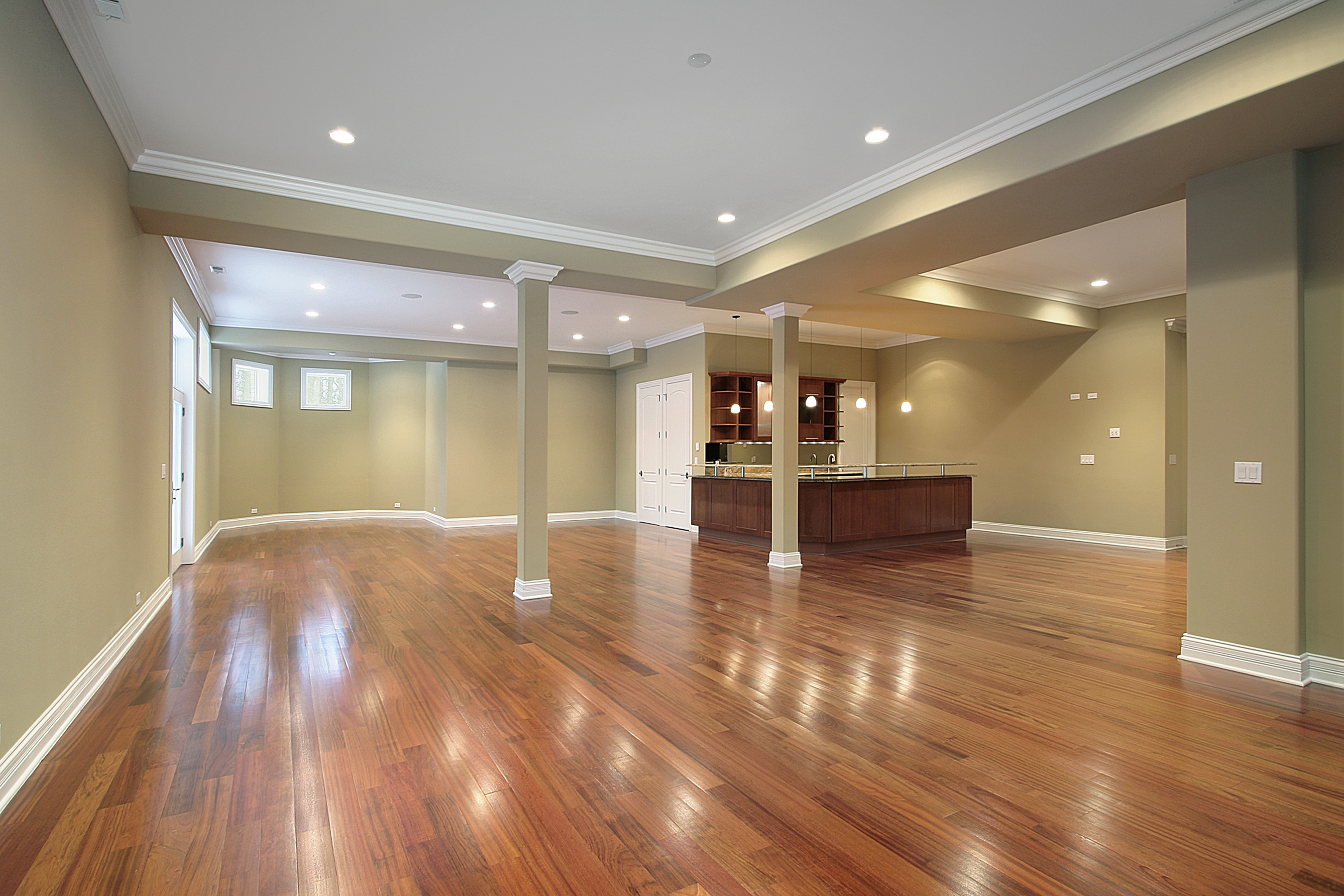
3 Pet Friendly Flooring Options
September 18, 2015
What You Need To Know About Carpet Removal
November 11, 2015Basement flooring installation could be one of the most challenging things for a homeowner. On the one hand, there is an abundance of flooring materials available, but on the other hand, are they all good for the ground level?
Before selecting your flooring type, you should definitely go through some of the most important points that we listed below.
MOISTURE AND MOISTURE RESISTANCE
This is what the whole concern is about. If you do not want to deal with warped or cracked basement floors in the future, you need to assess the condition of your basement in terms of moisture resistance. You can either do a quick test yourself or call in a specialist for a proper assessment. Knowing the condition of your floor will allow you to address the issue in the right manner. And keep in mind there are always good flooring solutions available for any results.
SEASONAL SEEPAGE
If your basement suffers from time to time from high level of humidity, your best choice could be vinyl flooring or linoleum flooring. They both come in various designs and colors.
Another possible option is ceramic tile which is known for its water resistant features. Moreover, damaged tiles can be easily replaced without a need to redo the whole basement flooring.
MID TO MINIMUM LEVEL OF HUMIDITY
If your basement is mostly dry throughout the year, you can add laminate and engineered hardwood to your available options. Laminate is certainly more moisture resistant that engineered Ottawa hardwood flooring, but less than linoleum, vinyl and ceramic tiles.
At the same time, laminate and engineered flooring are those materials that can bring warmth and a nice soft touch to your basement floor as they have a pad underneath. If properly installed with climate and moisture adjustments, they can serve you well for a long time.
Carpet is probably the last choice for basement flooring as it soaks all the moisture in and rots.
SUBFLOOR LEVELING
Depending on the type of flooring for basement, you might need to level your concrete floor out.
Some types of floors can be installed directly on the concrete slab. The surface has to be smoothed to avoid bumps and other imperfections that may seem to be tiny, but can become a real problem once covered with your flooring. Other floors require installation of some sort of subfloor.
SPACE DIMENSIONS
You need to realize the more you put on your concrete floor, the closer your ceiling is getting which basically means that the thickness of your basement floors affects the ceiling height. If that’s the concern, consider flooring that does not require a subfloor installation.
SUMMARY
There are lot of flooring options that you can choose from, but mostly the level of moisture in your basement will dictate the rules. If you follow these rules, you will be able to eliminate or minimize any future problems. Consulting a specialist does make a difference!


